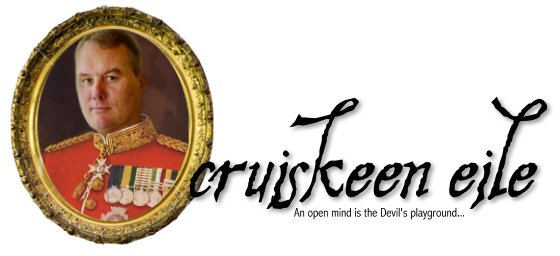69
69 is not a reference to a position of mutual affection adopted in the course of his priapic peregrinations by the youthful Sir Myers na gCopaleen, but to a test proposed by that theorist of media ecology Marshall McLuhan for persons humming and hawing over the purchase of a new book.
Professor McLuhan may be familiar to readers from Annie Hall in which Woody Allen magic-realistically pulls him out of a hat as the ultimate slapdown for the cinema-queue loudmouth who pontificates on the great man's work.
The key word here is indulgent.
According to an extract from John Sutherland's How to Read a Novel published in The Guardian recently, McLuhan's test applies Occam's razor to breathless blurbs, prominent product placements, 3 for 2 deals, bestseller lists and "quote whores" and requires us, simply, to turn to page 69 of whatever book it is we're browsing in the book shop. If you like what you read there, buy the book.
Apparently, a better test has never satisfactorily been devised, and having applied it to a number of books about the old homestead, I confirm its efficacy. Whatever the strange alchemy at work, page 69 seems to be usefully representative of the text as a whole, to embody the general tone and style and, curiously, to be a point at which some initial waymark of the plot is passed or epiphany occurs.
So here's page 69 of Watching the Door for those readers agonising over whether to submit themselves to Shagger's tender mercies.
Professor McLuhan may be familiar to readers from Annie Hall in which Woody Allen magic-realistically pulls him out of a hat as the ultimate slapdown for the cinema-queue loudmouth who pontificates on the great man's work.
The key word here is indulgent.
According to an extract from John Sutherland's How to Read a Novel published in The Guardian recently, McLuhan's test applies Occam's razor to breathless blurbs, prominent product placements, 3 for 2 deals, bestseller lists and "quote whores" and requires us, simply, to turn to page 69 of whatever book it is we're browsing in the book shop. If you like what you read there, buy the book.
Apparently, a better test has never satisfactorily been devised, and having applied it to a number of books about the old homestead, I confirm its efficacy. Whatever the strange alchemy at work, page 69 seems to be usefully representative of the text as a whole, to embody the general tone and style and, curiously, to be a point at which some initial waymark of the plot is passed or epiphany occurs.
So here's page 69 of Watching the Door for those readers agonising over whether to submit themselves to Shagger's tender mercies.
SIX
BY LATE MARCH 1972 the British government had grown tired of the grotesque effrontery of the Northern Ireland government at Stormont directing policy (and the British army) in the Province, and abolished it. Unionists were perplexed, astounded, indignant: they had grown used to this absurd dependency status, wherein for fifty years they had been given capital grants by the British government, and had even been lent the British army, but nonetheless expected the British to have little or no say in the conduct of policy. What had once been a favour had over time become a right, and you do not easily remove a perceived right from a Calvanistic Covenanter - well not without using large earth-moving machinery, and much blood, sweat and tears.
The night that Stormont was suspended, I walked up that heartland of Protestant sensitivity, the Shankill Road, to test the mood. I had expected maddened crowds, as there usually were when loyalist power had gone down another notch, but this night there weren't. Instead groups of men stood at street corners, glaring angrily. Had any of them discovered a reporter from Dublin wandering all alone, I would probably have been torn limb from limb as a spy.
I walked into the Eagle chip shop, which was beneath the headquarters of the Ulster Volunteer Force, the illegal paramilitary organization whose existence was now effectively tolerated in an utterly one-sided security policy. The Eagle, justifiably, was believed to be one of the best chip shops in Belfast.
In my strange accent I chatted away about how quiet the road was, before sauntering past the groups of leather-jacketed young men simmering with ire, back to my car, parked in a side street at the botom of the Shankill Road. I was, deliberately, testing my nerve: that is, going just a little mad.
As Withnail might say, look at the size of his head, imagine the size of the fucker's balls!
Readers who feel the above seems unusually politically correct for the Colonel should note that the next paragraphs feature a noble and anguished intervention by a British soldier of the officer persuasion. Interestingly, I could swear I've read another anecdote by Sir Myers some time back which features a very similar officer uttering the same irate words but in a very different context. A cynic might believe the character is a mere cypher and something of a moveable feast, a crack trooper whom the Colonel can deploy at a moment's notice to some corner of a foreign argument.
Cruiskeen Eile, however, is very, very far from a cynical publication.
Readers who feel the above seems unusually politically correct for the Colonel should note that the next paragraphs feature a noble and anguished intervention by a British soldier of the officer persuasion. Interestingly, I could swear I've read another anecdote by Sir Myers some time back which features a very similar officer uttering the same irate words but in a very different context. A cynic might believe the character is a mere cypher and something of a moveable feast, a crack trooper whom the Colonel can deploy at a moment's notice to some corner of a foreign argument.
Cruiskeen Eile, however, is very, very far from a cynical publication.

